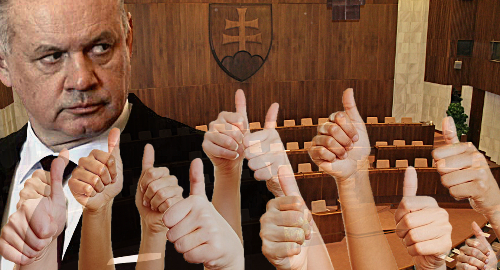 Slovakia’s online gambling liberalization is back on schedule after legislators overrode President Andrej Kiska pre-Christmas veto.
Slovakia’s online gambling liberalization is back on schedule after legislators overrode President Andrej Kiska pre-Christmas veto.
On Tuesday, the Slovak National Council voted to override the December 21 decision by President Kiska (pictured) to veto the country’s new Gambling Act, which legislators had originally approved on December 4.
The legislation deals with a wide variety of gambling issues, but the biggest change is ending the online gambling monopoly of the state-owned national lottery operator Tipos. For the first time, Slovakia will allow private domestic firms as well as online operators based in other European Union markets to apply for licenses.
Tipos will retain its monopoly over online lotteries, bingo and raffles while online casino and sports betting products will now be open to competition. Individual online product licenses will cost operators €3m apiece or €5m for a dual-product permit.
Licenses will be valid for a 10-year initial term with an option for a five-year extension. However, any operator whose domains have appeared on Slovaki’s online gambling blacklist will need to wait 12 months after their domain was tagged with this scarlet letter to submit their application.
The government’s original timetable envisioned a March 1 start for accepting online casino applications with approvals to follow by July 1. Online betting applications were to be accepted starting July 1 but approved applicants wouldn’t start taking wagers until July 1, 2020. It’s unclear whether this recent parliamentary delay will alter this schedule.
Online gambling revenue will be taxed at a rate of 22% plus an additional 0.7% that will go toward funding a new Office for Regulation of Gambling under the Ministry of Finance.
Kiska voiced numerous objections to the legislation as originally approved, including the requirement for Slovaks to submit their Citizen’s Card when registering online gambling accounts, which Kiska claimed could potentially put citizens’ personal data at risk.